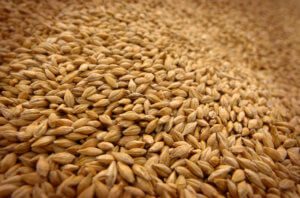
Pharmacy sales in Ukraine in January-May 2018 in money terms grew by 38% compared to the same period in 2017, to UAH 36.607 billion.
Sales in physical terms increased by 6% in January-May 2018, to 654.188 million packs, the Business Credit company told Interfax-Ukraine.
According to the company, in particular, retail sales of medicines in money terms increased by 41%, UAH 30.3563 billion, sales in packages grew by 18%, to 454.508 million packs.
The average price of goods in the so-called “pharmacy basket” for the first five months of 2018 was UAH 55.96 for the package, the average price of medicines was UAH 66.78 for the package.
In May 2018, pharmacy sales amounted to UAH 6.579 billion, which is 26% more than a year earlier, medicines sales increased by 28%, to UAH 5.441 billion.

The International Finance Corporation (IFC, the division of the World Bank Group) and the Swiss State Secretariat for Economic Affairs (SECO) have signed an agreement to facilitate energy efficiency renovations in Ukraine’s residential sector.
According to a posting on the website of the IFC, Switzerland will provide up to $1.8 million to IFC Advisory Services to support legal reforms that will support energy-efficiency refurbishments by engaging with housing management companies on behalf of homeowners’ associations.
According to the report, the initiative represents the third and the final phase of IFC’s Residential Energy Efficiency Advisory project in Ukraine, which started in partnership with SECO in 2010.

Turkey’s resorts remain most popular in the number of charter flights from Ukraine in the 2018 tourist season, and around 80 charter flights to this country is serviced from Ukrainian airports every week.
Analysts from TripSee online service told Interfax-Ukraine that the share of charter flights to Turkey in the 2018 tourist season is 72-75% of all charter programs of tour operators working in Ukraine.
About 15-20% of the charter programs of Ukrainian tour operators are flights to Egypt, then Greece, Bulgaria and Tunisia.
Analysts of TripSee also said that in 2018, new charter destinations for the resorts of Italy – to Calabria and Ancona, as well as to the Peloponnese Peninsula in Greece – were launched from Ukraine.
“Only one operator has several flights a day to Turkey, so the client can choose the most convenient time for departure. In Europe, this year there is also a more extensive flight program. The cost of tours has increased, but insignificantly. The market has hot tours and tours for later dates,” the TripSee analysts said.
Commenting on the pace of prices for package tours in the summer season of 2018, they said that prices for tours to Turkey start from UAH 7,000 all inclusive, Greece – from UAH 10 thousand per person with breakfasts, to Spain – from UAH 12 thousand with breakfasts and dinners.
At the same time, the analysts from TripSee said that, as before, most customers are looking for hot tours, especially to Turkey, but in the season of 2018 there is a noticeable upward pace in earlier purchases.

Ukraine as of June 22, 2018 threshed 1.1 million tonnes of early grain and leguminous crops from 349,000 ha, the press service of the Agricultural Policy and Food Ministry of Ukraine has reported.
The press service said that average yield is 31.6 centners per ha.
A total of 211,000 tonnes of winter wheat was harvested from 73,000 ha with the average yield of 29.1 centners per ha, some 877,000 tonnes of winter barley from 269,000 ha with the average yield of 32.6 centners per ha.
Harvesting of winter rapeseeds continues: 62,000 tonnes from 36,500 ha with the average yield of 17 centners per ha.
Some 13,000 tonnes of peas were harvested from 7,000 ha with the average yield of 17.9 centners per ha.